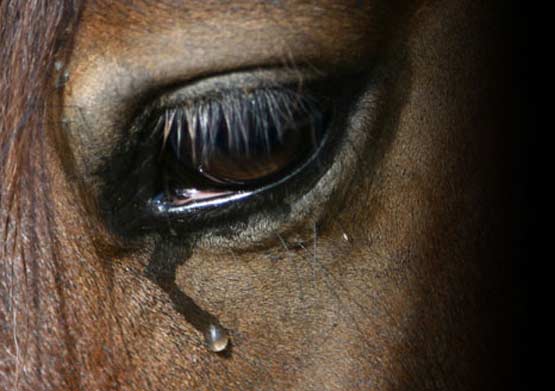
A retired Cambridge academic has been accused of “outrageous” and “utterly unacceptable” behaviour after she refused to help a 13-year-old Israeli girl with a school project “until there is peace in Palestine.”
Dr Marsha Levine, who spent a decade at the University of Cambridge’s McDonald Institute for Archaeological Research as fellow then as senior research associate, said she could not answer Shachar Rabinovitch’s questions about ancient horses because [Levine] boycotts Israel. — The Telegraph, Dec. , 2015
Welcome back to “Horse Sense,” the weekly radio show where we answer your questions about horses ancient and modern. I’m Dr. Marsha Levine, author of “Domestication, Breed Diversification and Early History of the Horse,” and other best-sellers. Who’s our first caller?
Caller One: Hi, Dr. Levine. This is Jay. I love horses and I always wanted to know which is the earliest horse and where it lived. Can you help me?
Dr. Levine: I’d love to Jay, but first tell me — are you Israeli?
Jay: Um, no. I live in New York.
Dr. Levine: OK then. Well, the earliest known horse was called Sifrhippus and lived in the forests of North America more than 50 million years ago. It was only the size of — I’m sorry, Jay, did you say New York? Are you Jewish by any chance?
Jay: Ye-e-e-s, but what does that have to do with…
Dr. Levine: Nothing, really, but tell me — do you have feelings about Israel?
Jay: You know, I was there on a teen tour, I guess I sort of support it, you know, like most Jews…
Dr. Levine: Thank you, Caller One, my assistant will be sending you a monograph on “Palestinian self-representation and the modalities of occupation.” Let’s go back to the phones. Who’s our next horse lover?
Caller Two: Dr. Levine, my name is Samantha. When did people first start domesticating horses?
Dr. Levine: I am happy to answer your question, but first I have a question for you, Samantha. What are your views on the colonial paradigm post-1947?
Samantha: I’m 11.
Dr. Levine: That doesn’t matter, sweetie. You’re not too young to have an opinion on the dispossession of indigenous peoples, are you?
Samantha: Is this the horse show?
Dr. Levine: I’m sorry, Samantha. If you can’t engage in a serious discussion then I must move on. Next caller — Jabril, welcome to “Horse Sense.”
Jabril: My brother Ahmed thinks horses were first domesticated in the Eurasian steppes and then spread out, but I say they were tamed in different regions and chronological periods. Who’s right?
Dr. Levine: First let me say, Jabril, that I support your struggle, whatever it may be, and that may you soon be free from your oppressors.
Jabril: I live in Edison, New Jer--
Dr. Levine: And let me also say that Paleolithic and Holocene cave paintings suggest that the Iberian Peninsula was the site of a likely local domestication event. Free Palestine! Next caller, please.
Samantha: Dr. Levine? This is Samantha again. I sort of lied before. First of all, I’m Israeli. And I have thought about the colonial paradigm in the Middle East.
Dr. Levine: Well, that’s fine, dear, but if you’re Israeli…
Samantha: No, please. Just hear me out. I am fully committed to a peace process that respects Palestinian claims to sovereignty. I feel that failing to reach a two-state solution to the Israeli-Palestinian conflict poses a serious challenge to liberal Zionism’s core convictions. And my teacher at our joint Hebrew-Arabic elementary school wants us to find out if it’s true that rhinoceroses and tapirs are the closest living relatives to horses.
Dr. Levine? Are you still there? Dr. Levine?
Dr. Levine: You’ve been listening to “Horse Sense,” the call-in show about everyone’s favorite ungulate mammal. Please tune in next week when we’ll discuss mitochondrial DNA testing on ancient breeds and the representation of “indigeneity” in proto-Zionist thought. Good night!
Comment by clicking here.
Andrew Silow-Carroll is the editor in chief and CEO of the New Jersey Jewish News, an award-winning weekly newspaper published in four editions and on the web.



 Contact The Editor
Contact The Editor
 Articles By This Author
Articles By This Author